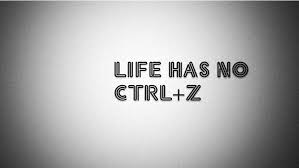记忆方法
将“life”与“light”的发音相似性联系起来,因为“life”的发音类似于“light”。想象“life”如同“light”一样照亮了世界,代表生机与活力,从而帮助记忆这个单词的含义。
以上内容由AI生成, 仅供参考和借鉴
中文词源
life 生命
来自古英语life,存在,生命,来自PIE*leip,停留,持续,词源同live,leave.比较world.
life ’s work 毕身成就比喻用法。
英语词源
- life
-
life: [OE] Prehistoric Germanic *līb- denoted ‘remain, be left’. From this was formed the noun *lībam, which in due course produced English life (the semantic connection between ‘remaining’ and life – and the closely related live – is thought to lie in the notion of being ‘left alive after a battle’). Of the noun’s Germanic relatives, Swedish and Danish liv still mean ‘life’, but German leib and Dutch liff have moved on semantically to ‘body’. English alive is a derivative of life, not of the verb live.
=> live - life (n.)
- Old English life (dative lif) "existence, lifetime, way of life, condition of being a living thing, opposite of death," from Proto-Germanic *libam (cognates: Old Norse lif "life, body," Dutch lijf "body," Old High German lib "life," German Leib "body"), properly "continuance, perseverance," from PIE *leip- "to remain, persevere, continue; stick, adhere" (see leave (v.)). Much of the modern range of meanings was present in Old English. Meaning "property which distinguishes living from non-living matter" is from 1560s. Sense of "vitality, energy" is from 1580s. Extended 1703 to "term of duration (of inanimate objects)."
Life-jacket is from 1840; life-preserver from 1630s of anything that is meant to save a life, 1803 of devices worn to prevent drowning. Life-saver is from 1883, figurative use from 1909, as a brand of hard sugar candy, from 1912, so called for shape. Life-form is from 1861. Life cycle is from 1855.
权威例句
- 1. No matter where you go in life or how old you get, there's always something new to learn about. After all, life is full of surprises.
- 不管你生活在哪里,你有多少岁,总有新东西要学习,毕竟,生活总是充满惊喜。
- 2. If you love life, life will love you back.
- 热爱生活,生活也会厚爱你。
- 3. When life gets hard and you want to give up, remember that life is full of ups and downs, and without the downs, the ups would mean nothing.
- 当生活很艰难,你想要放弃的时候,请记住,生活充满了起起落落,如果没有低谷,那站在高处也失去了意义。
- 4. The happiest are not those who own all the best things, but those who can appreciate the beauty of life.
- 最幸福的人们并不一定什么都是最好,只是他们懂得欣赏生活的美好。
- 5. If you're not satisfied with the life you're living, don't just complain. Do something about it.
- 对于现况的不满,不能只是抱怨,要有勇气作出改变。
